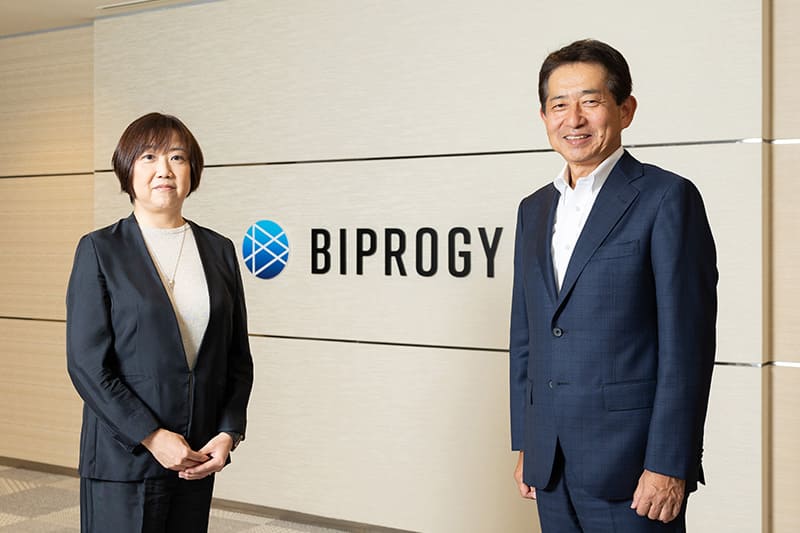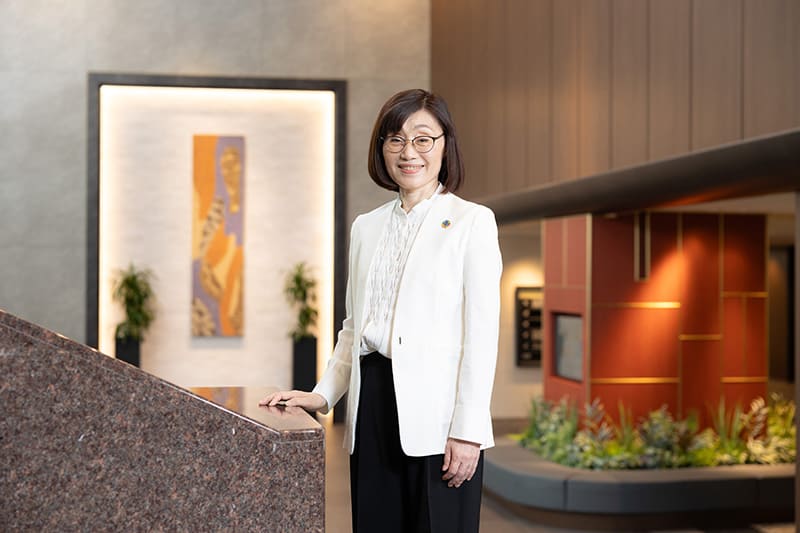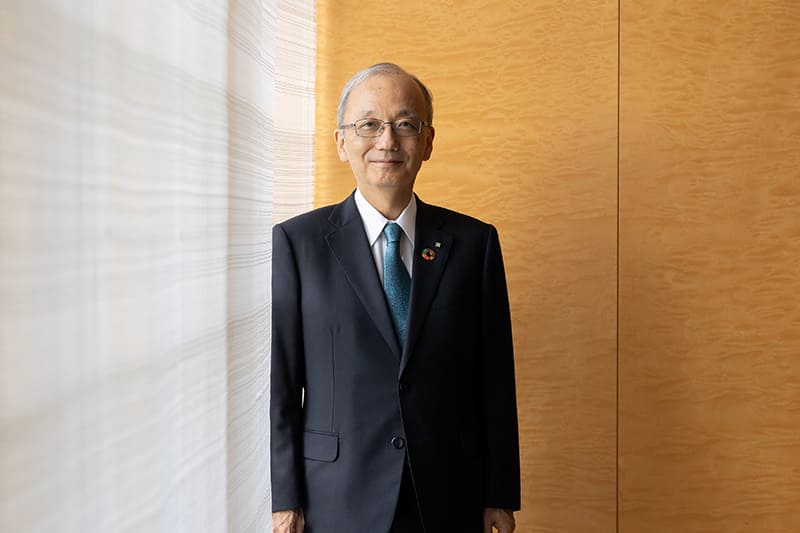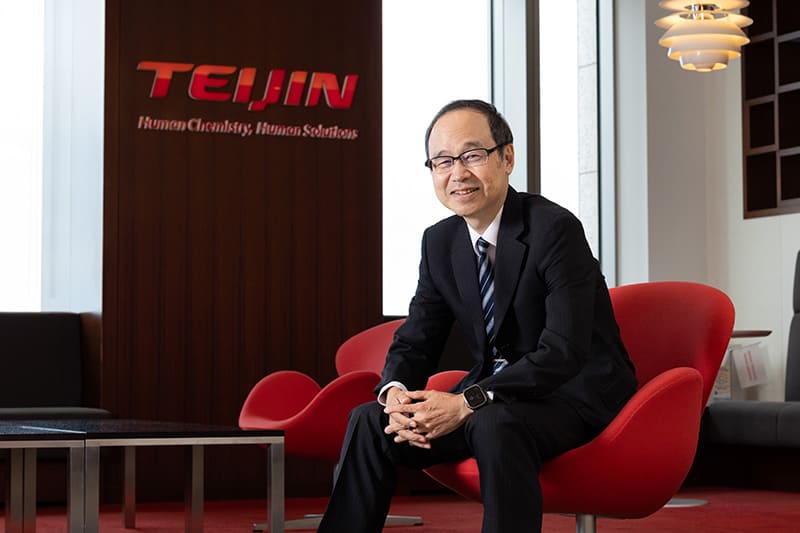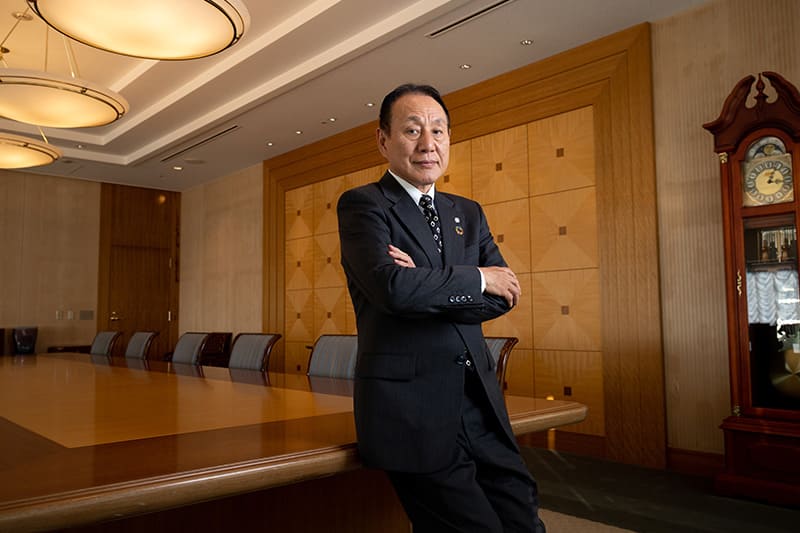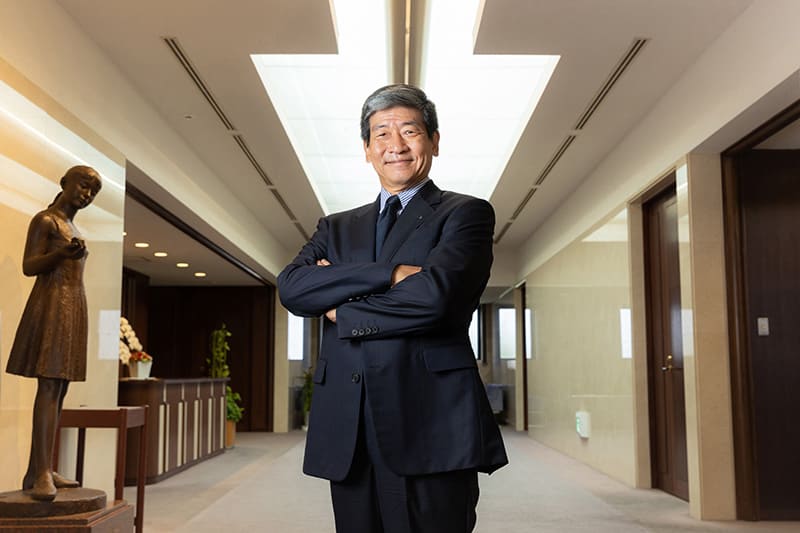July 14, 2023
Daiwa Securities reforms the workplace and beyond
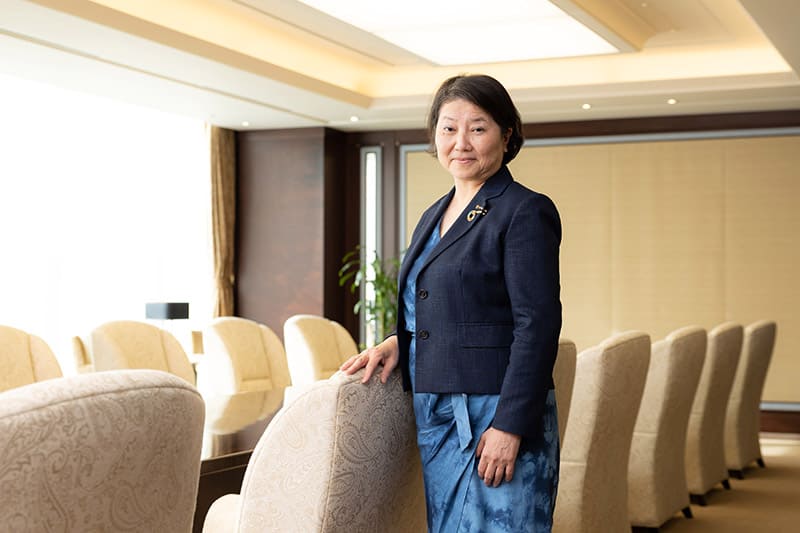
More than a decade ago, Daiwa Securities Group Inc. banned unlimited overtime work, a traditional workstyle that had prevailed in many Japanese workplaces, especially in the brokerage industry, for many years. The company made this decision before corporate sustainability gained the spotlight and before the government started to take steps toward better work-life balance in 2019.
“Daiwa started to ban working after 7 p.m. This was when people didn’t even know about work-life balance,” Deputy President Keiko Tashiro said in a recent interview. “But actually, it was not only for labor reform but also for equal footing among male and female workers.”
The decision shows that the company, with a 121-year history, was one step ahead of the rest of the industry in terms of human capital investment.
Japan has become notorious for long hours of overtime that often led to karōshi — death from overwork. The securities industry is symbolic for heavy workloads, especially on salespeople. Moreover, the country has lagged behind other developed countries in terms of gender equality. According to the World Economic Forum’s Gender Gap Report 2023, released on June 21, Japan ranked 125th among 146 countries, a record low.
In 2007, Daiwa Securities started to tell its workers not to work after 7 p.m. Otherwise, Tashiro explained, men would put in as much overtime as they could in order to move up the corporate ladder, while women, who are conventionally also required to do household chores and care for children and aging parents, had to leave earlier and suffered lower reputations at work.
The reforms were led by former President Shigeharu Suzuki. In 2005, he launched a team to promote women’s empowerment, followed by the setting up of a new section to promote work-life balance. In 2009, four female executives, including Tashiro, were appointed to the board for the first time in the group’s history. Women accounted for five of the 14 board members as of 2023, or 35.7%, more than double the level of three years earlier.
“We started what sounds obvious now by getting all the workers involved. I guess it triggered a big shift in our company’s policy, and our spirit of kicking off something by getting everyone around involved has remained intact since then,” Tashiro said in the interview, part of a monthly series focusing on sustainable Japanese companies by Naonori Kimura, a partner specializing in corporate reform for the consulting firm Industrial Growth Platform Inc.
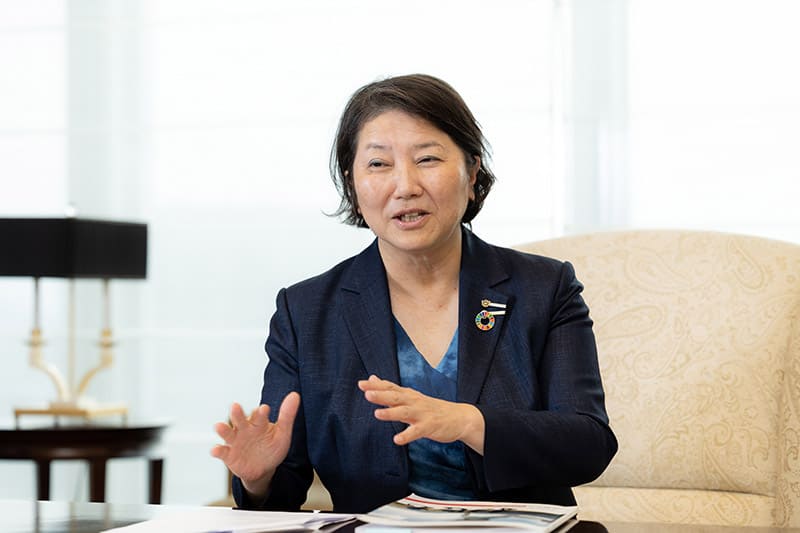
In 2021, Daiwa Securities outlined its long-term goals in its “Vision 2030,” whose core concept is “from savings to SDGs,” aiming to realize the U.N.’s sustainable development goals by creating a sustainable capital cycle. The vision is based on its corporate principles: “building trust,” “placing importance on personnel,” “contributing to society” and “maintaining healthy earnings results.”
If you look at Japanese history, you can see that the corporate culture of working long hours harmed workers’ ability to devote time to their families and themselves. The old lifestyle of working long hours caused too much of a burden on working mothers and led to declining birthrates. The government finally started to take steps several years ago, and legislation for work reforms took effect in 2019.
But Tashiro acknowledged that workplace reforms alone cannot solve the problem. For example, she explained, company-supported babysitting services are popular among female workers with children — but not similar housekeeping services, due to a psychological barrier among Japanese women on resorting to such measures.
“Only laying out systems doesn’t necessarily solve the whole problem,” Tashiro said, adding that erasing such barriers is important as well.
The brokerage industry in Japan has seen roller-coaster rides in the last several decades, during which brokers and salespeople in particular have been under pressure. After the economy experienced a boom in stock and land prices and the benchmark Nikkei 225 average marked a peak of 38,915.87 in 1989, the Big Four brokerage houses, including Daiwa Securities, suffered harsh competition amid financial deregulation starting in the 1990s. Following the bursting of the bubble economy and the 1997 collapse of Yamaichi Securities Co., one of the Big Four, analysts say the economy has languished through “lost decades.” In 2008, the global market was hit hard by the “Lehman shock,” in which the U.S.-based global investment bank Lehman Brothers filed for bankruptcy due to problems with subprime mortgages in the U.S. loan market.
Asked what changed Daiwa securities, as the financial industry has long been prone to focus on short-term profits, Tashiro said the factors included the global trend of corporate social responsibility and the company’s support for “vaccine bonds” funding the purchase of vaccines for children in poor countries.
In 2008, Daiwa Securities became an underwriter and sold vaccine bonds issued by the International Finance Facility for Immunisation, a global financial alliance, for individual investors. The bonds accelerate funding for health and immunization programs in 70 of the poorest countries in the world.
The bonds are supported by the World Bank and the GAVI Alliance, an international alliance created in 2000 to improve access to vaccines for children. Such vaccines were already made available through annual donations from developed countries, but funding through bond issuance makes quicker provision of vaccines possible.
Daiwa Securities is also proactive in helping address widening inequality among children. “Child poverty is something our president (Seiji Nakata) has been tackling for a long time,” Tashiro said. “Our main business is based on capitalism, which tends to widen inequality. So we think it is quite natural to allocate part of our profits to addressing the issue.”
According to government statistics, 1 in 7 children lives in poverty in Japan. The poverty rate, which was 10.9% in 1965, has been on the rise since the 1980s, which could undermine national economic power in the long term.
In addition to the group’s financial support for poverty-related funds, Daiwa Securities supports several unique volunteer activities for its workers. One of them is the monthly “Jeans Day,” when workers wear casual clothes and donate to nonprofit organizations, which vary — for example, in March 2022, the group offered a donation to UNICEF for children in Ukraine following the Russian invasion.
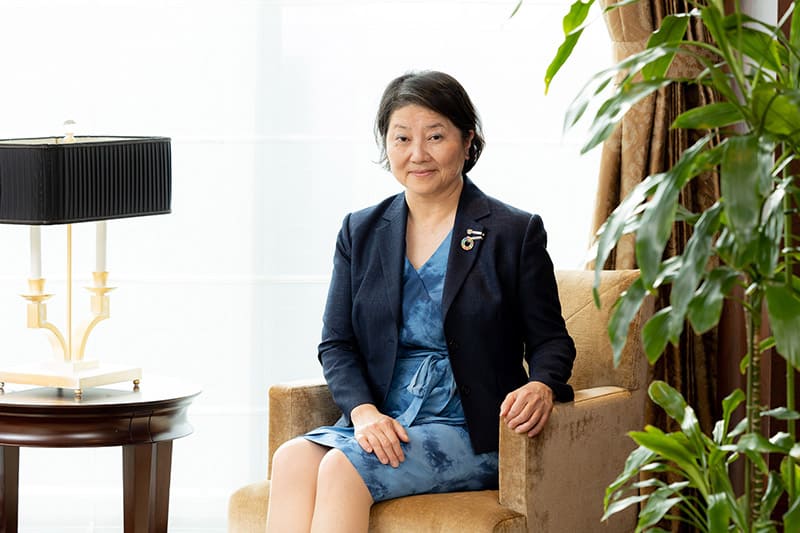
Naonori Kimura
Industrial Growth Platform Inc. (IGPI) Partner
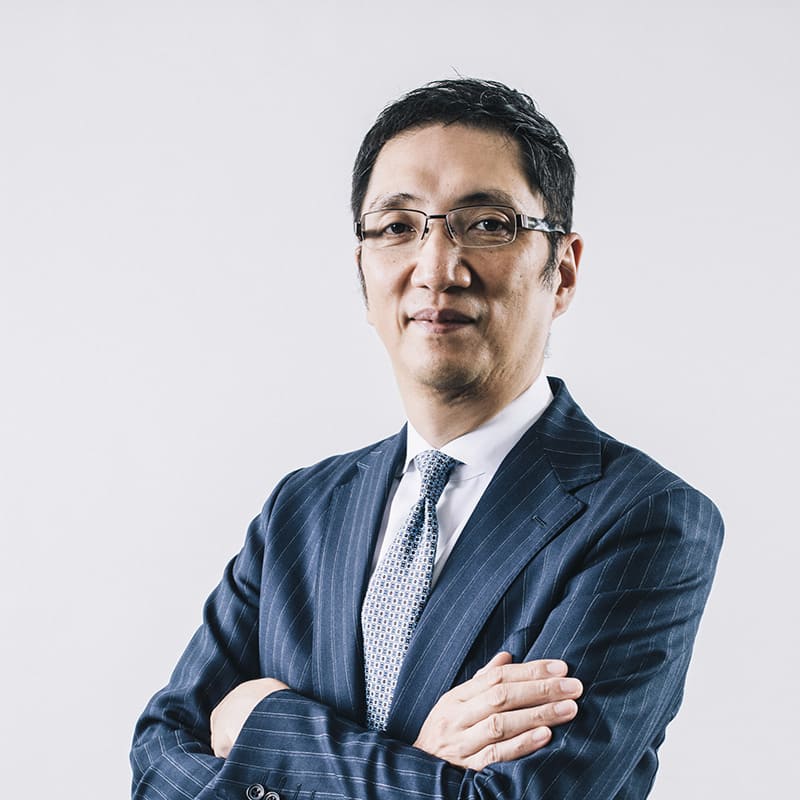
Daiwa Securities Group Inc. addresses a number of social issues, and issued its “Vision 2030” goals in the 2021 business year. But not many people know that the group long ago started business activities to make society sustainable.
In 2008, Daiwa underwrote and sold “vaccine bonds” providing financial assistance for developing countries to vaccinate children. In recent years, the group has made efforts to improve living standards for children and prevent poverty from passing through generations. “Business should not play a role of widening inequality. It is also important that we give back to society,” said Deputy President Keiko Tashiro.
A booklet on its SDG strategies based on “Vision 2030” also helps many workers to get involved and think by themselves, make it affect their business and proactively take action. As for human resources, the root for added value in business, Daiwa Securities started to tackle work reforms much earlier than its competitors and increased job liquidity inside the company by shifting its employment system from conventional membership-type work, with long-term employment and fluid duties, to job-type work. With these steps, the group aims for a corporate culture that helps employees work together smoothly without an overemphasis on seniority.
I believe the top managers have already started to see long-term progress and more sustainable management after implementing “Vision 2030.”

